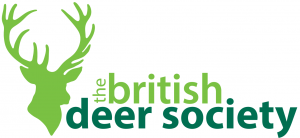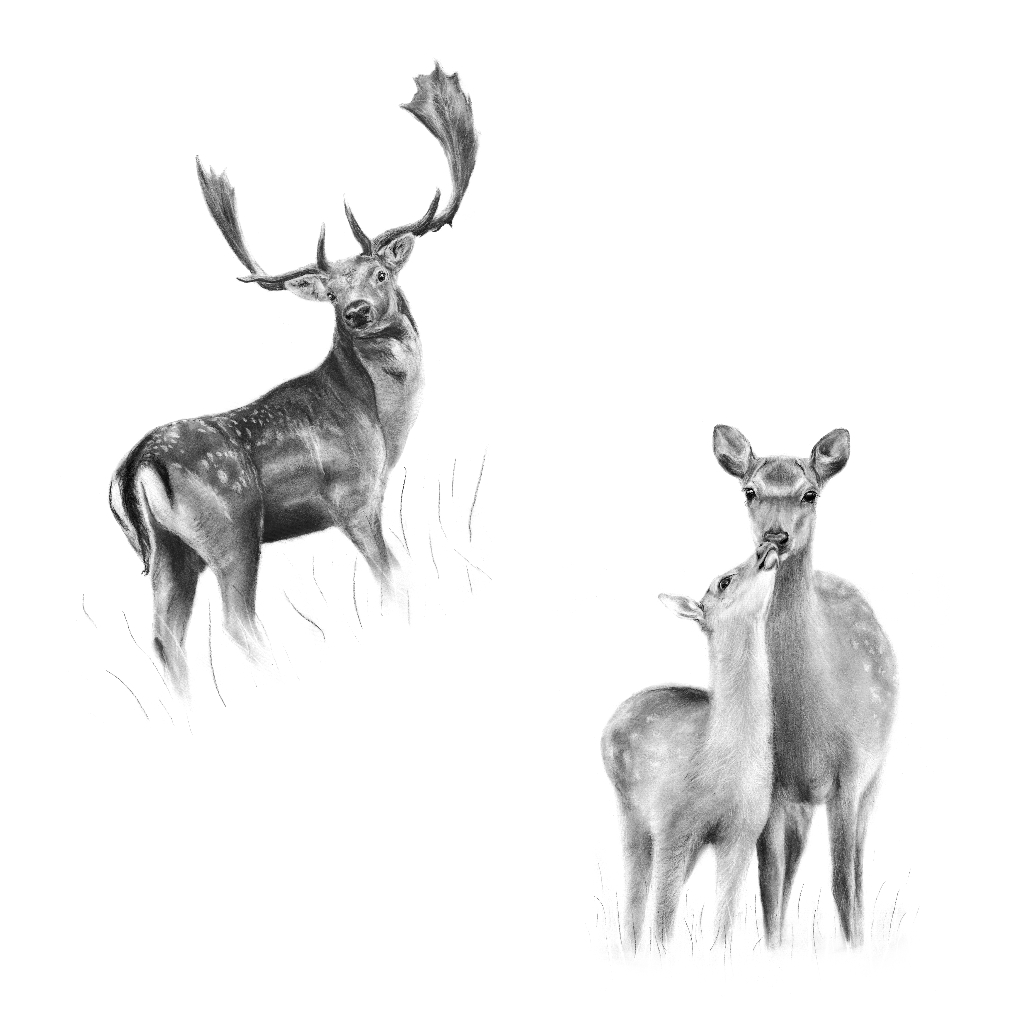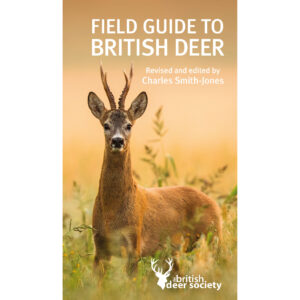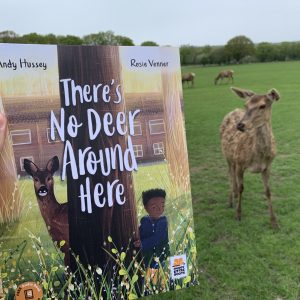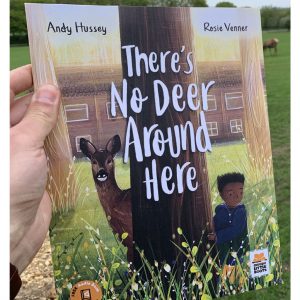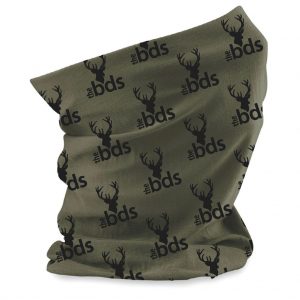DO YOU HAVE A QUESTION ABOUT DEER?
Then you’ve come to the right place!
Our mission is to educate and inspire everyone about deer in their environment.
To help fulfil that mission, we offer a unique, free educational service, Ask The BDS, where you can ask one of our deer experts anything you’d like to know about deer. We mainly focus on UK deer, but if you do have a question about deer in the rest of the world, our experts will try to help you as best they can too!
ADVICE & RESOURCES ABOUT DEER IN THE UK
Although we love people getting in touch with us, the advice you’re looking for may already be available on our website. Below you can find answers to some of the most common queries we get about deer.
If you don’t see what you need, or need help to identify a deer, then please go to the Ask A BDS Expert form here and one of our team will get back to you as soon as possible.
DEER RELATED HELP AND ADVICE
- I found a baby deer all alone. Is it abandoned? What do I do?
- I hit a deer with my car! What should I do?!
- I found/saw an injured deer, how can I get help for it?
- I found a deer stuck in a fence. What do I do?
- I found a dead deer. Is there anything I should do?
- How do I stop deer coming into my garden/eating my flowers?
- What's the best way to stop deer damaging crops/young trees?
- Is it OK for me to feed wild deer? What should I feed wild deer?
FREQUENTLY ASKED QUESTIONS ABOUT DEER
There are 6 species of deer in the UK. 2 species are native – red and roe deer. The remaining 4 species – fallow, sika, muntjac and Chinese water deer are non-native.
Read more: UK deer species
You can download our free deer identification guides to help you work out which of the 6 UK deer species you saw.
Alternatively, you can ask one of our experts for help.
The larger UK deer species (red, sika and fallow) tend to prefer grazing on grasses, herbs and dwarf shrubs like heather. They will also browse on other growth. When food is scarce they may eat woody shrubs, tree shoots and even bark.
The smaller UK deer species (roe, muntjac and water deer) are more likely to browse on a wider variety of vegetation including shrubs, tree shoots and leaves, and garden plants. Water deer also graze widely on young grasses, sedges and rushes.
Learn more: View our UK deer species pages
Depending on the species, a young deer can be called a fawn, a kid or a calf.
Learn more: Deer species & naming
Depending on the species, a female deer is called either a hind or a doe.
Learn more: Deer species & naming
Depending on the species, a male deer is called either a stag or a buck.
Learn more: Deer species & naming
Herd is the usual term for a group of deer.
Deer are unique in being the only animals to produce antlers. Horns are grown by ruminant animals such as goats, sheep, cows and antelope.
Would you like to know more? Read: Antlers vs horns.
Don’t see an answer to your question about deer?
ANSWERS TO PREVIOUS QUESTIONS SENT IN
Did you know, your deer question could end up featuring on the BDS Blog? Here are some of the topics that have already been featured and answered in detail by one of our deer experts, Charles Smith-Jones.
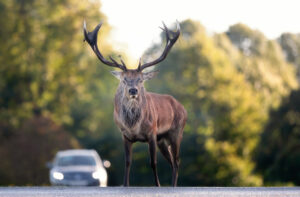
Ask BDS – What Can I Do About Deer Near Busy Roads
The British Deer Society often receive enquiries from concerned people who have busy roads and deer populations close to their homes and wonder if there is anything that they can do to help reduce the chances of a deer/vehicle collision.
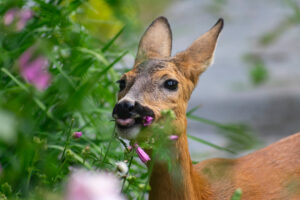
Ask BDS – How Do I Protect My Garden From Deer
We understand why some gardeners are frustrated by the presence of deer in their gardens – we’re here to help! Learn more about preventing and discouraging deer from visiting your garden
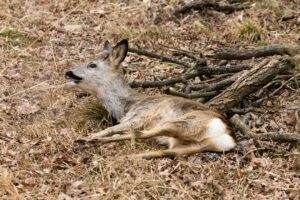
Ask BDS – Injured Deer
It’s heartbreaking to see a deer in need of help, but we can all make a difference. The British Deer Society is often contacted by concerned members of the public who have encountered a deer that they consider to be injured or sick and wonder what can be done to assist it.
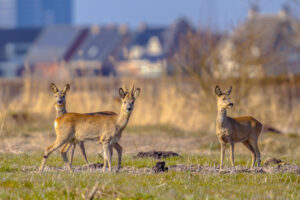
Deer in Urban Areas
Deer are regularly reported in urban gardens or housing estates and members of the public often wonder if there is any action that they ought take.
In most cases there is no need to do anything. The species most regularly encountered in built up areas tend to be roe or muntjac. Both are small and generally solitary, and are often content to live in close proximity to humans.
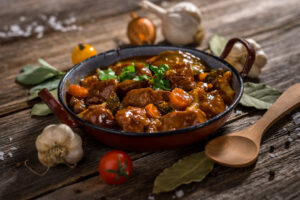
Ask BDS – How Ethical is Wild Venison?
The BDS is often approached by members of the public who wish to know more about the wild venison that they eat. Most appreciate that venison is a sustainable product that comes from necessary deer control measures. In particular, though, they may wonder whether there are alternatives to culling. They also want to be reassured that venison has been sourced humanely and with proper respect for the deer.
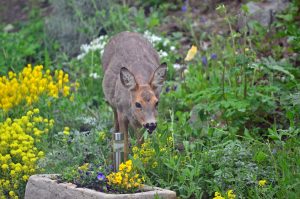
Ask BDS – Can I Feed Deer in My Garden?
Although deer are not always welcome visitors to the garden, the BDS is often asked if food can be put out for them. In fact there is really no need to feed wild deer as they can usually find all that they need naturally, even during dry conditions.
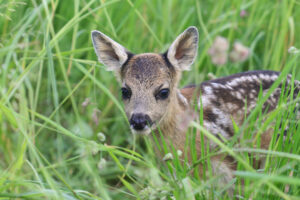
Ask BDS – Baby Deer
Most of the UK’s deer species have regular birthing seasons between May and July. Muntjac are the only exception and their fawns might be encountered at any time of year. The British Deer Society regularly receives enquiries from members of the public who have found a baby deer that they believe has been ‘abandoned’ by its mother and are wondering what they should do.
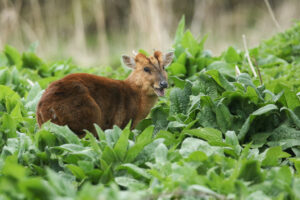
Ask BDS – Fencing and Muntjac
The British Deer Society receives regular queries from gardeners who are anxious to exclude deer, and particularly muntjac, from their vegetable patches and other places containing delicate or valuable plants.
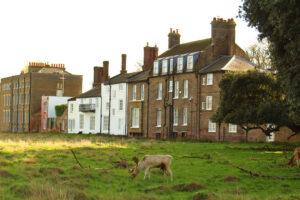
Ask BDS – Deer and land development
The British Deer Society often receives enquiries from concerned local residents regarding new housing, solar farms or other developments on land where they regularly see deer.
NEED MORE HELP? ASK A BDS DEER EXPERT
PLEASE HELP US TO KEEP EDUCATING & INSPIRING EVERYONE ABOUT DEER FOR FREE
If you have found our free resources about deer in the UK useful then we’d really appreciate your support in helping us keep them free for all! How can you support our work?



